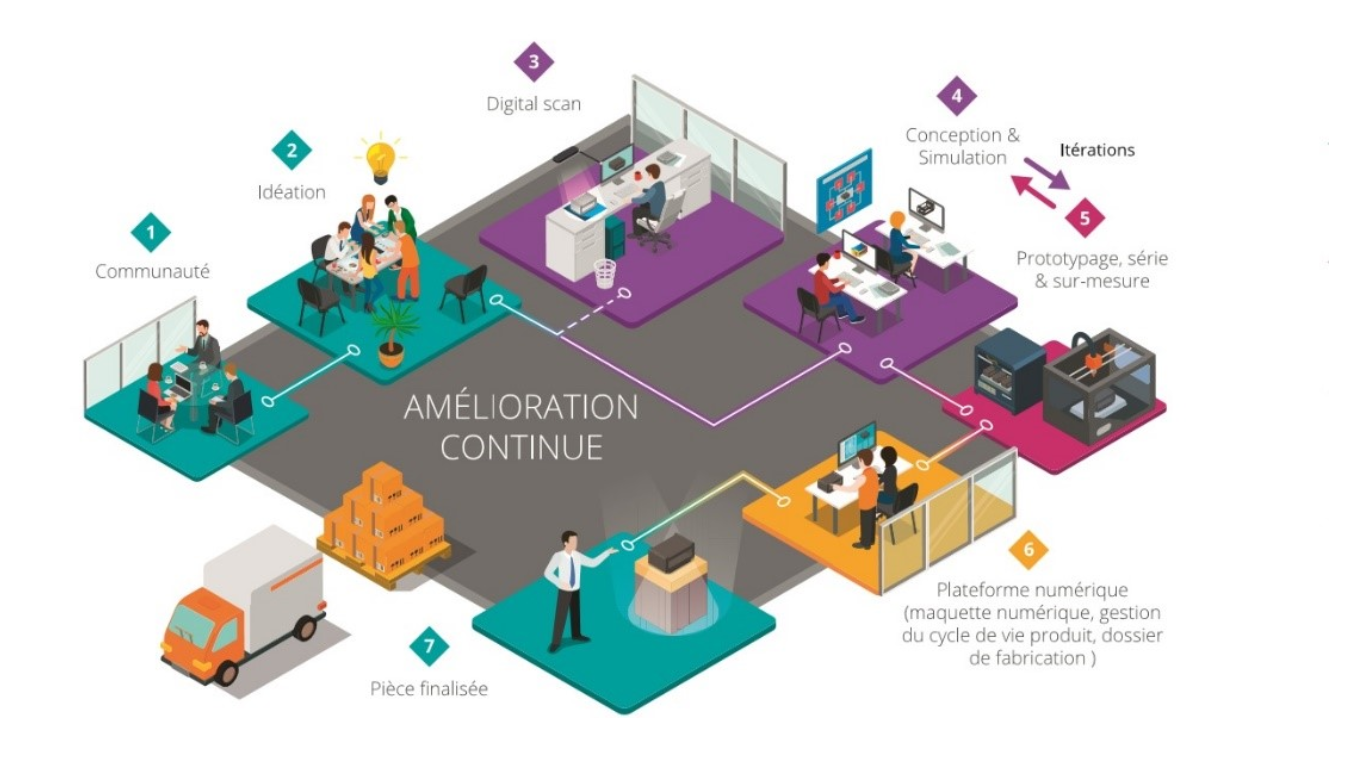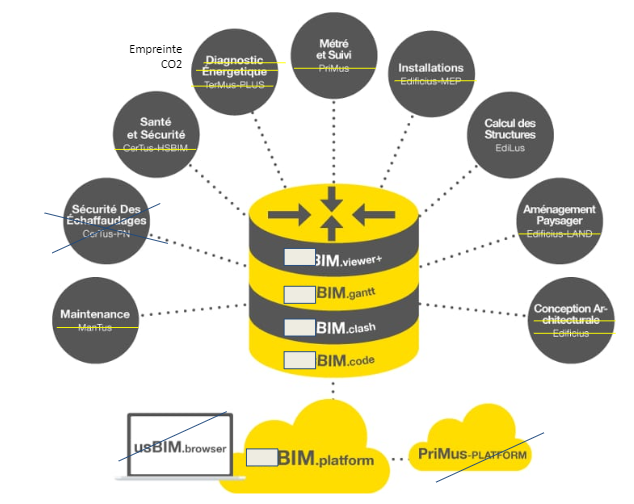
With the arrival of Industry 4.0, manufacturing is profoundly transforming, integrating cutting-edge technologies such as the Internet of Things, Artificial Intelligence, and Cloud. At the heart of this revolution are collaborative platforms, which promote transparent communication and break down silos in interactions within companies. These digital tools not only enhance collaboration but also optimize production through the creation of digital twins and mass customization in Lot size 1.

A significant transformation is underway in the industrial sector, known as Industry 4.0. This fourth industrial revolution relies on digital technologies to create smart and connected factories. One of the major pillars of this transformation is the use of collaborative platforms, enabling transparent communication and improved collaboration among various stakeholders. This article explores how these platforms are revolutionizing digital manufacturing and changing the industrial landscape.
Table des matières
ToggleIntroduction to Industry 4.0
Industry 4.0, often referred to as the fourth industrial revolution, aims to transform traditional production lines into smart and connected factories. This concept relies on the integration of advanced technologies such as the Internet of Things (IoT), Artificial Intelligence (AI), Cloud, and Big Data. These innovations facilitate advanced automation and the digitalization of industrial processes.
The Role of Collaborative Platforms
Collaborative platforms play a central role in the functioning of Industry 4.0. They allow for the breaking down of silos in interactions between different departments and stakeholders in the production chain. Through these platforms, information is shared in real-time, thus facilitating smooth communication and better coordination of activities.
Improvement of Communication and Collaboration
Collaborative platforms promote transparent communication within companies. They enable teams to share data, track progress, and quickly resolve issues. This leads to enhanced collaboration among various trades, from design to production to maintenance.
Customization and Flexibility of Production
One of the main advantages of collaborative platforms in Industry 4.0 is the ability to achieve customized production. Companies can now respond to the specific demands of each customer, producing unique lot sizes (Lot size 1) while maintaining competitive costs. This flexibility is made possible through a deep integration of digital systems.
Adaptation of the Production Model
The traditional production model is undergoing significant change. Companies must adapt to this new industrial paradigm, which requires a revision of processes and ongoing employee training. Collaborative platforms facilitate this transition by allowing for rapid adaptation to new technologies and best practices.
Skills Enhancement and Cultural Transformation
To fully leverage the opportunities offered by Industry 4.0, it is essential to enhance the skills of workers. Ongoing training and cultural adaptation are imperative. Collaborative platforms provide tools for digital training and resources to help employees acquire the necessary skills.
Creation of Digital Twins
One of the innovative applications of collaborative platforms is the creation of digital twins. These virtual replicas of products or processes allow for simulating and optimizing operations before their actual implementation. This reduces risks and improves efficiency.
The Impact on the Industrial Sector
The introduction of collaborative platforms is profoundly changing the industrial sector. It facilitates digital transformation and enables the establishment of a smart industry. Companies that adopt these technologies benefit from increased competitiveness, improved production quality, and unprecedented flexibility.
A New Production Model
Industry 4.0 and collaborative platforms create a new production model where automation and digital integration are ubiquitous. Companies can thus respond more quickly to market demands and offer highly customized products while optimizing their costs.
Advantages of Collaborative Platforms
- Improvement of communication
- Optimization of processes
- Promotion of innovation
- Cost reduction
Key Technologies
- Internet of Things (IoT)
- Artificial Intelligence (AI)
- Cloud Computing
- Big Data
Note de lecture très complète sur mon essai Open design, fabrication numérique et mouvement maker par @JeanneMainetti
— Camille Bosqué (@CamilleBosque) March 16, 2022
👌🏼 @EditionsB42 @nicolasthely
👉🏼 https://t.co/poKFq265Ql#opendesign #makers #fablabs #anct pic.twitter.com/rOKS7jx8oy





